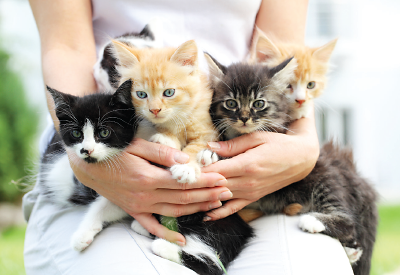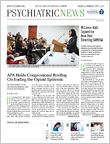The cat and mouse game between toxoplasmosis and schizophrenia entered another round recently when a British study concluded that owning a cat was no grounds for increased risk of psychosis.
House cats, especially those who explore the outdoors, may carry the parasite Toxoplasmosis gondii, and epidemiological and animal studies at least hint at an increased risk for schizophrenia among offspring following in utero or early childhood exposure to the parasite.
There may be such a connection, but mere ownership of a cat during pregnancy or in early childhood does not increase the risk of psychotic events when children reach age 13 or 18, wrote Francesca Solmi, Ph.D., a postdoctoral research associate in psychiatric epidemiology at University College London, in a study published online February 22 in Psychological Medicine.
“The interpretation of our findings is that if there is a real association between T. gondii and schizophrenia, it would appear that owning a cat does not put the owners at an increased risk of infection compared to other potential sources, like handling infected soil, eating raw meat, and so on,” Solmi told Psychiatric News.
However, mere ownership of a feline isn’t enough to trigger the hypothesized cascade of risk, said Alan Brown, M.D., M.P.H, a professor of psychiatry and epidemiology at Columbia University Medical Center.
“Exposure to the parasite requires direct contact with cat feces followed by placing the hand to the mouth,” said Brown, who has studied the connection between toxoplasmosis and psychiatric illness for years.
T. gondii may also be present in soil or water, or can be ingested by eating raw, unwashed foods grown in infested gardens.
Solmi and her colleagues used data from the Avon Longitudinal Study of Parents and Children (ALSPAC), based on an initial cohort of 16,734 pregnant women in southwestern England who gave birth in the 13 months after April 1991. The study assessed 6,705 children at age 13 and 4,676 at age 18. After adjustment for several potential confounders, they found no evidence that cat ownership when the mothers were pregnant or when children reached age 4 or 10 was associated with psychotic symptoms at ages 13 and 18.
“While most people who experience psychotic symptoms in adolescence will not develop psychotic disorders later in life, these symptoms often indicate an increased risk for schizophrenia and other mental illnesses, including depression,” said Solmi.
Symptoms were chosen as the outcome measure because the original number of children in ALSPAC (about 14,000) was too small to provide enough adolescents with clinical diagnoses of schizophrenia at age 18.
Symptoms of psychosis are found in several psychiatric conditions, and inferring a diagnosis of schizophrenia or psychosis from those symptoms may be premature, said Brown.
Nonetheless, cat owners should take basic sanitary precautions, said both Solmi and Brown.
“While pregnant women should continue to avoid handling soiled cat litter, given possible T. gondii exposure, our study strongly indicates that cat ownership in pregnancy or early childhood does not confer an increased risk of later adolescent psychotic experiences,” Solmi and colleagues concluded.
“It’s great to own a cat; I own a cat,” said Brown. “But cat owners should always wash their hands after cleaning the litter box. Cats are getting a bad rap.” ■
An abstract of “Curiosity Killed the Cat: No Evidence of an Association Between Cat Ownership and Psychotic Symptoms at Ages 13 and 18 Years in a UK General Population Cohort” can be accessed
here.

